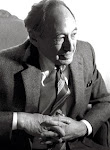 In order to understand fully what Man's power over Nature, and therefore the power of some men over other men, really means, we must picture the race extended in time from the date of its emergence to that of its extinction. Each generation exercises power over its successors: and each, in so far as it modifies the environment bequeathed to it and rebels against tradition, resists and limits the power of its predecessors. This modifies the picture which is sometimes painted of a progressive emancipation from tradition and a progressive control of natural processes resulting in a continual increase of human power. In reality, of course, if any one age really attains, by eugenics and scientific education, the power to make its descendants what it pleases, all men who live after it are the patients of that power. They are weaker, not stronger: for though we may have put wonderful machines in their hands we have pre-ordained how they are to use them. And if, as is almost certain, the age which had thus attained maximum power over posterity were also the age most emancipated from tradition, it would be engaged in reducing the power of its predecessors almost as drastically as that of its successors. And we must also remember that, quite apart from this, the later a generation comes—the nearer it lives to that date at which the species becomes extinct—the less power it will have in the forward direction, because its subjects will be so few. There is therefore no question of a power vested in the race as a whole steadily growing as long as the race survives. The last men, far from being the heirs of power, will be of all men most subject to the dead hand of the great planners and conditioners and will themselves exercise least power upon the future.
In order to understand fully what Man's power over Nature, and therefore the power of some men over other men, really means, we must picture the race extended in time from the date of its emergence to that of its extinction. Each generation exercises power over its successors: and each, in so far as it modifies the environment bequeathed to it and rebels against tradition, resists and limits the power of its predecessors. This modifies the picture which is sometimes painted of a progressive emancipation from tradition and a progressive control of natural processes resulting in a continual increase of human power. In reality, of course, if any one age really attains, by eugenics and scientific education, the power to make its descendants what it pleases, all men who live after it are the patients of that power. They are weaker, not stronger: for though we may have put wonderful machines in their hands we have pre-ordained how they are to use them. And if, as is almost certain, the age which had thus attained maximum power over posterity were also the age most emancipated from tradition, it would be engaged in reducing the power of its predecessors almost as drastically as that of its successors. And we must also remember that, quite apart from this, the later a generation comes—the nearer it lives to that date at which the species becomes extinct—the less power it will have in the forward direction, because its subjects will be so few. There is therefore no question of a power vested in the race as a whole steadily growing as long as the race survives. The last men, far from being the heirs of power, will be of all men most subject to the dead hand of the great planners and conditioners and will themselves exercise least power upon the future.The Abolition of Man
C.S. Lewis
Thanks to Jonathan for this post.




No comments:
Post a Comment